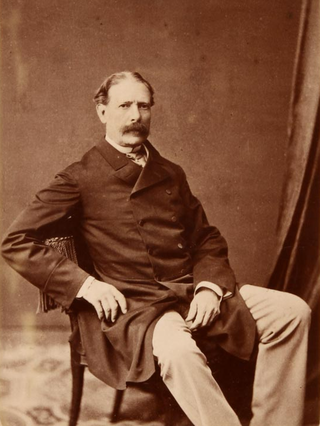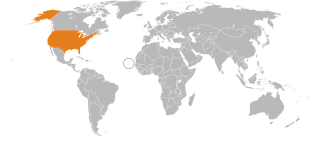 |
|---|
The Cabinet of Cape Verde consists of the Prime Minister of Cape Verde and 12 Cabinet Ministers. Cape Verde has a parliamentary system and ministers formulate the government's policies and advises the National Assembly.
 |
|---|
The Cabinet of Cape Verde consists of the Prime Minister of Cape Verde and 12 Cabinet Ministers. Cape Verde has a parliamentary system and ministers formulate the government's policies and advises the National Assembly.
| Party key | Movement for Democracy | |
|---|---|---|
| African Party for the Independence of Cape Verde | ||
| Democratic and Independent Cape Verdean Union |
| Portrait | Portfolio | Incumbent | |
|---|---|---|---|
 | Prime Minister of Cape Verde | José Ulisses de Pina Correia e Silva | |
 | Minister of the Presidency, Parliamentary Affairs and Sports | Fernando Elísio Freire | |
 | Minister of Finance and Public Administration | Olavo Correia | |
 | Minister of Justice and Labour | Janine Lélis | |
 | Minister of Culture and Creative Industries | Abraão Vicente | |
 | Minister Foreign Affairs and Communities and Minister of Defence | Luís Filipe Tavares | |
 | Minister for Infrastructure, Planning and Housing | Eunice Silva | |
 | Minister of Economy and Employment | José Gonçalves | |
 | Minister of Interior | Paulo Rocha | |
 | Minister of Agriculture and Environment | Gilberto Correia Carvalho Silva | |
 | Minister of Health and Social Security | Arlindo do Rosário | |
 | Minister for Education, Family, and Social Inclusion | Maritza Rosabal | |
| Ex officio member | |||
 | President of the National Assembly | Jorge Pedro Mauricio dos Santos | |

Politics of Cape Verde takes place in a framework of a semi-presidential representative democratic republic, whereby the Prime Minister of Cape Verde is the head of government and the President of the Republic of Cape Verde is the head of state, and of a multi-party system. Executive power is exercised by the president and the government. Legislative power is vested in both the government and the National Assembly. The judiciary is independent of the executive and the legislature. The constitution, first approved in 1980 and substantially revised in 1992, forms the basis of government organization. It declares that the government is the "organ that defines, leads, and executes the general internal and external policy of the country" and is responsible to the National Assembly.

The recorded history of Cape Verde begins with the Portuguese discovery of the island in 1458. Possible early references to Cape Verde date back at least 2,000 years.

Pedro de Verona Rodrigues Pires is a Cape Verdean politician who served as Prime Minister of Cape Verde from 1975 to 1991, and later as President from 2001 to 2011.

José Maria Pereira Neves is a Cape Verdean politician who is currently the president of Cape Verde, having previously served as the Prime Minister of Cape Verde from 2001 to 2016. He is a member of the African Party for the Independence of Cape Verde (PAICV). In the 2021 presidential election, he was elected with 51.7% of votes, beating his nearest rival Carlos Veiga who got 42.4% of the total votes.

António Maria de Fontes Pereira de MeloGCTEKGF was a Portuguese statesman and engineer. He was a leading parliamentarian and political figure of his time. Among other posts held, he was six times minister of finance and minister of public works. From 1871 to 1886, he served three times as prime minister of Portugal, for a total of 11 years.

The National Assembly is the unicameral legislative body of the Republic of Cabo Verde.
Eva Verona Teixeira Ortet is a former member of the Pan-African Parliament from Cape Verde.

Cape Verde–United States relations are the international relations between Cape Verde and the United States.

The following outline is provided as an overview of and topical guide to Cape Verde:

Cape Verde or Cabo Verde, officially the Republic of Cabo Verde, is an archipelago and island country in the central Atlantic Ocean, consisting of ten volcanic islands with a combined land area of about 4,033 square kilometres (1,557 sq mi). These islands lie between 600 and 850 kilometres west of Cap-Vert, the westernmost point of continental Africa. The Cape Verde islands form part of the Macaronesia ecoregion, along with the Azores, the Canary Islands, Madeira, and the Savage Isles.

Kontinuasom is a 2010 documentary film which was released in Cape Verde and Spain. It was directed by Oscar Martinez. The film describes the musical heritage and culture of Cape Verde.

Brazil – Cape Verde relations refer to the bilateral relations between the Federative Republic of Brazil and the Republic of Cape Verde. Both nations are members of the Community of Portuguese Language Countries, Group of 77 and the United Nations.
The following lists events that happened during 2014 in Cape Verde.
The following lists events that happened during 2001 in Cape Verde.
The following lists events that happened during 2016 in Cape Verde.
Maria Cristina Lopes Almeida Fontes Lima is a Cape Verdean lawyer and politician who served as minister of justice from 2001 to 2006, Minister of Defence from 2006 to 2011 and Deputy Prime Minister and Minister of Health from 2011 to 2016.
Eunice Silva is a Cape Verdean civil engineer, writer and politician from Santiago.